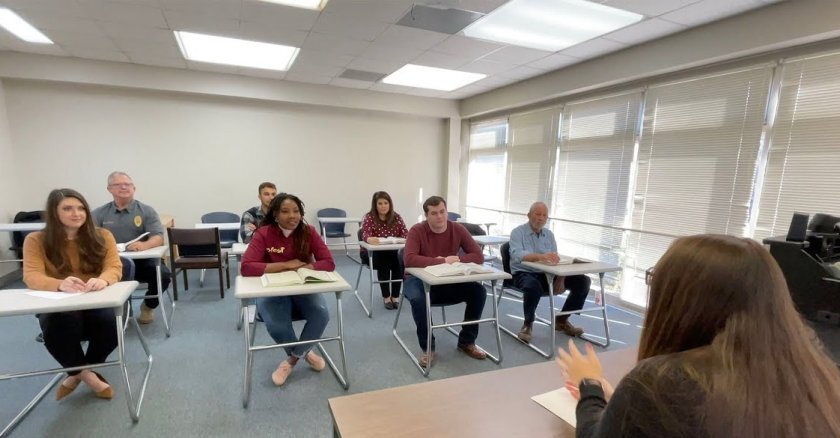In a surprising twist, state governments have led the charge toward hiring based on skills and aptitudes rather than relying solely on a college degree as a signal of a person’s ability to contribute. Since Maryland declared in 2022 that it would no longer require four-year college degrees for thousands of state government jobs, at least 20 states have adopted hiring practices for public-sector roles that emphasize aptitudes over educational pedigree.
The private sector is increasingly adopting a similar hiring strategy. In a recent survey of 2,000 employers conducted by ZipRecruiter, 45 percent said they had removed degree requirements from some jobs over the past year, and 72 percent said that when hiring they place demonstrated skills above academic credentials.
That’s a smart approach in this era of tight labor markets. According to research from the national nonprofit Opportunity@Work, more than 70 million U.S. adults are “skilled through alternative routes” but are effectively shut out of higher-paying and upwardly mobile roles simply because they lack a four-year college degree. Considering the full range of a person’s life experiences, work-ready skills and motivation to contribute that aren’t neatly summed up on a résumé can unearth a vast supply of talent in places where employers seldom look.
But removing degree requirements is only the first step. To make good on the promise of skills-based hiring, more will be needed, from sweeping changes in state and federal policy to wholesale adoption of new technologies to help workers.
A good start would be for Congress to reform the broken Workforce Innovation and Opportunity Act (WIOA), which pays for short-term workforce training across the country. Federal lawmakers should allow states to follow Utah’s lead and create flexible and efficient state-level models that use WIOA funding to target fast-growing industry sectors in dire need of skilled talent. By consolidating employment and human services programs as Utah has done, states can create one-stop shops that better serve the needs of both workers and employers.
Two pending federal bills give reason for optimism. Last December, the House Committee on Education and the Workforce passed a bill that would enable Americans to use Pell Grants to access short-term training programs. A second bill that won committee approval provides a much-needed update to the nation’s workforce system and state-federal partnerships to upskill more workers for roles in industries critical to our nation’s success.
At the state level, policymakers also should modernize and overhaul the old-school hiring processes embedded in human resources systems. Twelve states are now working with the National Governors Association to stand up the information technology infrastructure needed to create Learning and Employment Record (LER) systems so workers without college degrees can more easily share their skills and experiences with prospective employers. These systems will make it possible for regional employers to efficiently source and match with untapped talent.
Alabama presents a tantalizing look at what a statewide skills-based talent marketplace might look like. The groundbreaking Alabama Talent Triad is using a variety of tech tools — including LERs, an online credential registry and an employer portal — to connect state residents, employers and education providers in a single statewide skills-based hiring ecosystem. After finishing a six-month trial focused on manufacturing and health care, the Talent Triad recently expanded statewide and is currently serving more than 19,000 students and job seekers across a network of 50 participating companies.
States also can tap into the innovation economy to capitalize on the wave of interest in skills-based hiring. For example, the technology upskilling platform Escalate is helping large retailers build pathways for entry-level and frontline workers to middle-skill roles. Instead of paying top dollar to recruit talent on the open market, the company makes it possible to create advancement opportunities that can reduce turnover.
The AI-powered job-description generator PitchMe has built integrations with applicant-tracking systems that enrich candidate profiles with skills information and feed those candidates to employers based on the talents they want. FutureFit AI is helping employers and government agencies address talent shortages by tailoring solutions specific to their organizations.
Skills-based hiring represents a profound change in the way organizations approach talent acquisition. Widespread adoption of skills-based hiring — or “whole-person hiring,” as it was recently called in a Society for Human Resource Management report — removes barriers that prevent otherwise qualified and motivated individuals from securing careers and pathways to long-term social and economic mobility.
Change won’t come easy — or happen overnight. With origins dating back to the universities of medieval Europe, the bachelor’s degree has a head start of several centuries on those seeking to create a flatter and fairer talent marketplace. Elected officials have demonstrated the political courage needed to start a conversation on degree requirements and skill-based hiring. Now it’s time to back it up with the funding, policy commitments and technological infrastructure to ensure the skills-based hiring moment isn’t just a skills-based hiring mirage.
Steven Taylor is a former higher education administrator and current senior fellow at the Stand Together Trust. Taylor McLemore is an education technology entrepreneur and CEO and managing partner of Human Potential Capital.
Governing’s opinion columns reflect the views of their authors and not necessarily those of Governing’s editors or management.
Related Articles













